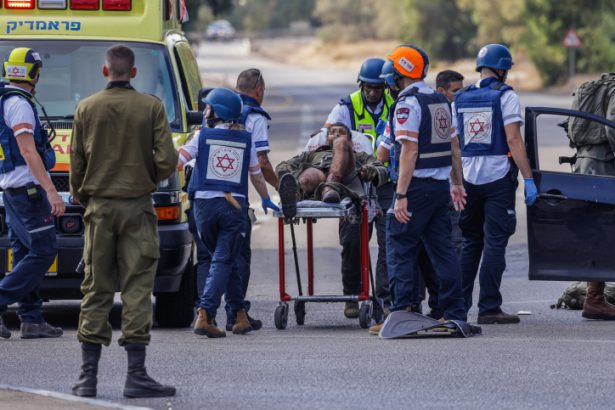Yossi Kuperwasser was chief of the research division in IDF Military Intelligence, and until recently, director general of the Ministry of Strategic Affairs. He believes Israel now ‘has no choice but to change its policy towards Hamas from containment and deterrence to decisively defeating it’.
Israel is at war with Hamas after it was caught totally by surprise and unprepared on three levels.
Strategically, it has adopted the view that Hamas is deterred, focusing on improving the living standard of the population in Gaza in order to stabilise its control of the dense strip. Israel had agreed to resume the entry of 18000 workers from Gaza to Israel and believed there was no reason to worry. This was of course the opposite of the truth. In fact, Hamas remained a fanatical radical Islamist organisation that was ready to perform cruel and horrific terror attacks and other war crimes against Israel, driven by similar ideologies to those of the Islamic State.
Operationally, due to a failure of imagination, Israel intelligence did not expect the kind of action chosen by Hamas – crossing the fence on land (after the tunnel option was taken care of by Israel) with a swarm of pickup trucks carrying heavily armed and well trained terrorists on their way to many targets simultaneously.
And tactically it simply had no idea this was happening in real time and was unable to handle it effectively due to intelligence and military shortcomings.
The price was extremely heavy. More than 750 dead, more than 2000 wounded and dozens of civilians and soldiers taken hostage. The army is still trying to stabilise the situation while mobilising reserves and conducting air attacks against Hamas targets in Gaza. Israel is preparing now to take the initiative and embark on a widescale operation against Hamas and PIJ in Gaza, while maintaining readiness to confront potential widening of the war to other fronts. In the north, Hezbollah tested Israel’s determination by launching a limited attack in the Mount Dov area in the eastern part of the border. The Israeli retaliation was swift but time will tell if it was convincing enough. In the West Bank there was no unusual reactions so far in spite of calls by Hamas and local terror squads to show solidarity with Hamas.
Iran, who was probably involved in the preparations and the guidance (there were several high-level meetings between Tehran’s leaders and Hamas’s and PIJ’s leaders recently) went out of its way to show its satisfaction and encouraged the Palestinians to escalate.
The Hamas offensive reflects its commitment to terror and to its merciless Jihadist identity. Hamas was preparing itself for a long time for this attack – using Iranian military and financial support to accumulate rockets and develop capabilities to infiltrate Israel. It probably believed that the time is ripe to start the war because of the problems Israel faced at home, the strengthening of the Iran-led camp and the feeble response of the West to Iran’s progress in its nuclear and regional plans and its cooperation with Russia, as well as Israel’s weakness vis-à-vis Hezbollah.
Hamas took the Iranian Islamic idea of swarm attack and implemented it very successfully. It hopes that connecting the attack to Al Aqsa will mobilise the Muslim population around the world and serve its goal of driving a wedge between Israel and Saudi Arabia, thus hampering the prospects of normalising the relations between them under American auspices.
In view of all that Israel has no choice but to change its policy towards Hamas from containment and deterrence to decisively defeating it to make sure it will not be able to rearm itself. This is necessary to get rid from the threat from Gaza but it is also critical to deter Iran and Hezbollah, and convince Saudi Arabia of its strength and capabilities. It should do so regardless of the complexity created by the holding of so many hostages in Hamas custody.
Thereafter it will have to study thoroughly the lessons of its failures and implement the lessons learned. The war against terror is first of all a learning competition and it seems that this time Israel lagged behind.



































